|
Books Should Be Free Loyal Books Free Public Domain Audiobooks & eBook Downloads |
|
|
Books Should Be Free Loyal Books Free Public Domain Audiobooks & eBook Downloads |
|
Top Authors |
|---|
|
Book type:
Sort by:
|
By: George MacDonald (1824-1905) | |
|---|---|
 The Lost Princess (or A Double Story, or The Wise Woman)
The Lost Princess (or A Double Story, or The Wise Woman)
Also known as "A Double Story" or "The Wise Woman."The story of two very spoiled girls, a princess and a peasant, who are kidnapped by a strange woman for a lesson in life. They may not emerge the same... but will their parents be changed for the better too? | |
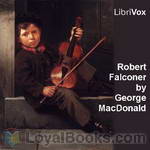 Robert Falconer
Robert Falconer
A Victorian novel devoted to beloved character first introduced to readers in MacDonald's David Elginbrod. | |
 Mary Marston
Mary Marston
Written at the height of George MacDonald's literary career, the story centers around the life of a simple merchant's daughter. Mary Marston's unswerving commitment to love, God, and others is contrasted with a backdrop of an array of characters and a complex and sometimes mysterious plot. It is a story of a woman who loves a man, and teaches him to change. Not out of his love for her, but simply because it was the right thing to do. MacDonald allows the characters a range from delightful to devious. As such, they were intended to serve as models. His message is that all eventually must stand before God. | |
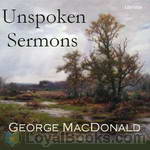 Unspoken Sermons
Unspoken Sermons
George MacDonald was a Scottish author, poet, and Christian minister. In his day he was considered one of the great Victorian authors on par with Dickens, Thackeray, Kipling and the like. His reputation as an author, however, has not fared as well largely because of the ubiquitous and fervent presence of religion throughout his works.MacDonald's theology, though sprinkled liberally throughout his fairly substantial number of books, is perhaps nowhere more palpable than in Unspoken Sermons. These sermons, though by no means amongst the most popular of MacDonald's work, have had theological impact from their first appearance... | |
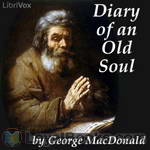 Diary of an Old Soul
Diary of an Old Soul
George MacDonald, a Scottish pastor, wrote these short poems, one for each day of the year, to help him with the severer misfortune he was experiencing. The poems are filled with hope and promises of Christ, yet, he also writes about his doubts. These poems are wonderful to listen to for people of any religion. | |
 St. George and St. Michael, Volume 1
St. George and St. Michael, Volume 1
’St. George and St. Michael’ is a little-known historical romance telling the story of a young couple who find themselves on opposing sides during the tumultuous years of the English Civil Wars.Tensions are rising between king and parliament; the Church of England and the numerous independent puritans and rumours abound that Charles I will soon declare open war on the dissident elements within his realm. Seventeen-year-old Dorothy Vaughan knows little of the brewing conflict, yet is sure that her loyalty must be with her king and her nation... | |
 The Cruel Painter
The Cruel Painter
This is the story of a daring college student's quest to win the icy heart of a beautiful girl. Unfortunately, the girl is the daughter of a cunning and sadistic master artist, who takes the student as an apprentice with the express intent of torturing the youth with his own hopeless love. The story is set in late 16 century Prague, amid mysterious happenings and the terrifying rumors of a vampire on the loose. | |
 Flight of the Shadow
Flight of the Shadow
A fantastical story of personal growth and a warning against the dangers of keeping secrets. This novel by George MacDonald is a deceptively easy read aimed to be accessible to teens, but the ideas will remain in your mind long afterwards. Beautifully written in the style of Gothic Novels of the nineteenth century, a story about relationships and redemption, secrets and confessions and an inspiring example of how to live in the light. | |
 Miracles of Our Lord
Miracles of Our Lord
Actions, it is often said, speak louder than words. But in the life of Christ - as George MacDonald shows - both spoke with an equal volume. Much attention is often devoted to what Jesus said while He was on earth, but many in our modern age are puzzled by the miracles. What are we to make of them? MacDonald - wise and gentle as ever - invites us into the miracles as a doorway into the inner life of Christ that we may intimately know Him and His Father. | |
 Annals of a Quiet Neighbourhood
Annals of a Quiet Neighbourhood
| |
 Thomas Wingfold, Curate
Thomas Wingfold, Curate
Republished in modern times as "The Curate's Awakening". A young man (Thomas Wingfold) "enters the church" through no real faith and only for want of something to do. After an encounter with a brash young atheist, he is thrown into an emotional, spiritual, and vocational crisis. Through his own doubts and through developing clarity gained from the counsel of a singular friend, he begins a slow journey toward faith, or - as he would put it - "a lovely hope." | |
 The Gifts of the Child Christ
The Gifts of the Child Christ
It's the Advent season in London but all is not well in the Greatorex household. All this will change with a surprise on Christmas morning. (Ann Boulais) | |
 Seaboard Parish
Seaboard Parish
This is Second book of Three series. All the same characters from the first book, just with a few new friends and family members. The Pastor moves up by the Sea and starts preaching at the Parish there. He and his wife have two daughters by now, who he loves so much. One of his daughters is ill, so they go to the Sea thinking the fresh air air will improve her health. While they are there, they meet an Artist whose gentlemanly ways, and strong personality wins the family's hearts, especially one of the daughter's heart. They have many adventures in the Parish. Filled with many heartwarming moments, and daring adventure. | |
By: Voltaire (1694-1778) | |
|---|---|
 Candide
Candide
A picaresque novel written by French satirical polemicist and philosopher Voltaire, Candide blatantly attacks the ideology of philosopher Leibniz. Candide follows the series of unfortunate events encountered by the young, yet blindly optimistic Candide. Shifting from one adventure to the next, Voltaire’s signature piece does not cease to grip its audience with its humorous criticism of power, wealth, love, religion, philosophy and especially optimism. The novel begins with the introduction of the protagonist Candide, who lives in the castle of an influential German Baron, along with the Baron’s daughter Cunégonde, and tutor Dr... | |
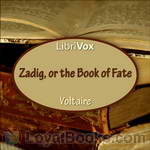 Zadig, or the Book of Fate
Zadig, or the Book of Fate
Zadig, ou La Destinée, (”Zadig, or The Book of Fate”) (1747) is a famous novel written by the French Enlightenment philosopher Voltaire. It tells the story of Zadig, a philosopher in ancient Babylonia. The author does not attempt any historical accuracy, and some of the problems Zadig faces are thinly disguised references to social and political problems of Voltaire’s own day. The book is philosophical in nature, and presents human life as in the hands of a destiny beyond human control. It is a story of religious and metaphysical orthodoxy, both of which Voltaire challenges with his presentation of the moral revolution taking place in Zadig himself... | |
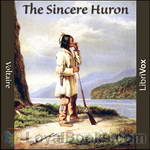 The Sincere Huron
The Sincere Huron
L’Ingénu is a satirical novella by the French writer Voltaire, published in 1767. It tells the story of a Huron Indian transported to the sophistication of eighteenth century Paris, and satirizes religious doctrine, as well as the folly and injustices of French society. | |
By: Carlo Collodi (1826-1890) | |
|---|---|
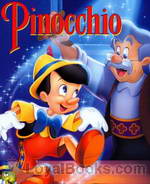 The Adventures of Pinocchio
The Adventures of Pinocchio
An old carpenter carves a little wooden puppet from a mysterious piece of wood that seems to have the ability to talk! He begins to love the little creature like his own son and names him Pinocchio. But the mischievous fellow runs away from his loving father as soon as he learns to walk. The Adventures of Pinocchio by Carlo Collodi follows the misadventures and naughty exploits of this delightfully “human” puppet who in his heart of hearts longs only to become a real boy. Carlo Collodi was the pen name of a gifted writer of children's books, Carlo Lorenzini who lived in Florence, Italy, during the late 19th century... | |
 Pinocchio
Pinocchio
This is the wonderful story of Pinocchio, the puppet who must learn many lessons before he can become a real boy. Carved by a woodcarver named Geppetto in a small Italian village, he dreamed of becoming a real boy but strays from the path of goodness many times and is very willing to listen to temptation. He has also been used as a character who is prone to telling lies and fabricating stories for various reasons. The story has appeared in many adaptations in other mediums. Pinocchio has been called an icon of modern culture, and one of most reimagined characters in the pantheon of children's literature... | |
By: Friedrich Nietzsche (1844-1900) | |
|---|---|
 Beyond Good and Evil
Beyond Good and Evil
Beyond Good and Evil, by Friedrich Nietzsche A searing indictment of concepts like “truth” and “language” Beyond Good and Evil, by Friedrich Nietzsche is a deeply thought provoking book that forms one of the keystones of modern thought and politics. In this book, Nietzsche takes the position that our subservience to fixed perspectives that are forced on us by our language and our ideals make us incapable of perceiving reality. He propounds the theory that ideals are not fixed but change over time, often dramatically, and end up becoming the exact opposite of what they originally were... | |
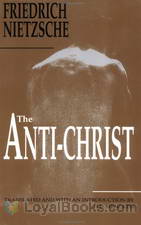 The Antichrist
The Antichrist
Save for his raucous, rhapsodical autobiography, Ecce Homo, The Antichrist is the last thing that Nietzsche ever wrote, and so it may be accepted as a statement of some of his most salient ideas in their final form. Of all Nietzsche’s books, The Antichrist comes nearest to conventionality in form. It presents a connected argument with very few interludes, and has a beginning, a middle and an end. | |
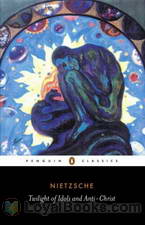 The Twilight of the Idols or How to Philosophise with the Hammer
The Twilight of the Idols or How to Philosophise with the Hammer
Of The Twilight of the Idols, Nietzsche says in Ecce Homo: “If anyone should desire to obtain a rapid sketch of how everything before my time was standing on its head, he should begin reading me in this book. That which is called ‘Idols’ on the title-page is simply the old truth that has been believed in hitherto. In plain English, The Twilight of the Idols means that the old truth is on its last legs.” Certain it is that, for a rapid survey of the whole of Nietzsche’s doctrine, no book, save perhaps the section entitled “Of Old and New Tables” in Thus Spake Zarathustra, could be of more real value than The Twilight of the Idols... | |
 Thus Spake Zarathustra: A Book for All and None
Thus Spake Zarathustra: A Book for All and None
Friedrich Wilhelm Nietzsche (1844–1900) was a nineteenth-century German philosopher. He wrote critical texts on religion, morality, contemporary culture, philosophy and science, using a distinctive German language style and displaying a fondness for aphorism. Nietzsche’s influence remains substantial within and beyond philosophy, notably in existentialism and postmodernism. Thus Spake Zarathustra is a work composed in four parts between 1883 and 1885. Much of the work deals with ideas such as the “eternal recurrence of the same”, the parable on the “death of God”, and the “prophecy” of the Overman, which were first introduced in The Gay Science... | |
 The Joyful Wisdom
The Joyful Wisdom
The Joyful Wisdom (later translated as The Gay Science), written in 1882, just before Zarathustra, is rightly judged to be one of Nietzsche’s best books. Here the essentially grave and masculine face of the poet-philosopher is seen to light up and suddenly break into a delightful smile. The warmth and kindness that beam from his features will astonish those hasty psychologists who have never divined that behind the destroyer is the creator, and behind the blasphemer the lover of life. In the retrospective... | |
By: Joseph Conrad (1857-1924) | |
|---|---|
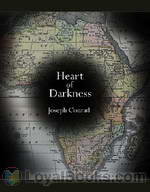 Heart of Darkness
Heart of Darkness
First published in Blackwood’s magazine as a three part serial in 1899 and published in 1902, Heart of Darkness centers on the experiences of protagonist Charles Marlow as he is assigned the duty to transport ivory down the Congo River. Conrad cleverly uses foreshadowing as a technique to convey the novella’s themes of hypocritical imperialism, the contradictory views on civilized as opposed to barbaric societies, racism, and the conflict between reality and darkness. Set in the second half of the nineteenth century, the story begins with the introduction of protagonist Charles Marlow, who is on board a boat harbored in the River Thames... | |
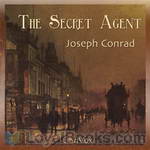 The Secret Agent
The Secret Agent
In this world of modern day spying, Joseph Conrad's spy story, The Secret Agent, is very pertinent. It deals with the over reaching influence of politics in everyday life, the sordid underbelly that lies beneath our civilization's sophisticated veneer, the strange persuasive power of anarchy, unbridled capitalism and its tragic consequences and the scourge of terrorism, exploitation and espionage. In an uncannily prophetic plot, The Secret Agent portrays a sinister scheme to bomb the famous Greenwich Observatory in London... | |
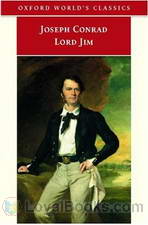 Lord Jim
Lord Jim
This story opens on a ship crowded with pilgrims traveling from Singapore to Mecca for the hajj. A young Englishman is the vessel's first mate. This is his first job and it is something that he has longed for all his life—to be on board a ship that sails the seven seas. One night as the ship sails through the calm waters of the Arabian Sea, it mysteriously begins to shudder. The crew, including the young first mate, believe that it is about to sink. They decide to strike out for themselves in a life-boat, abandoning the passengers... | |
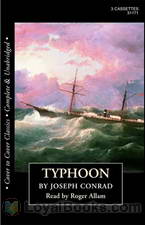 Typhoon
Typhoon
First published in 1902 as a serial in Pall Mall Magazine, the adventure novel follows the disrupting events onboard a steamboat after it takes a perilous course at sea, which triggers a state of mayhem onboard the steamer. Furthermore, the incident prompts the crew to gradually reveal their true nature which is brought to light in the time of crisis. Interestingly, the tale is believed to possess some autobiographical elements taken from Conrad’s own experiences at sea, which provide the novel with a strong foundation, as he effectively uses personification, imagery, and descriptive language to accurately illustrate the danger and chaos instigated by a powerful storm at sea... | |
 The Mirror of the Sea
The Mirror of the Sea
The Mirror of the Sea is a collection of autobiographical essays first published in various magazines 1904-6. Conrad early in his life earned his bread as a Master Mariner in sailing ships. In his Author’s Note to this work, Conrad states,”Beyond the line of the sea horizon the world for me did not exist….Within these pages I make a full confession not of my sins but of my emotions. It is the best tribute my piety can offer to the ultimate shapers of my character, convictions, and, in a sense, destiny—to the imperishable sea, to the ships that are no more, and to the simple men who have had their day.” | |
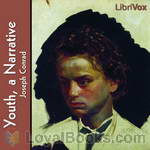 Youth, a Narrative
Youth, a Narrative
An autobiographical short story written in 1898 and included as the first story in the 1902 volume Youth, a Narrative, and Two Other Stories. This volume also includes Heart of Darkness and The End of the Tether, which are concerned with maturity and old age, respectively. “Youth” is narrated by Charles Marlow who is also the narrator of Heart of Darkness, Lord Jim and Chance. Youth depicts his first journey to the East.” | |
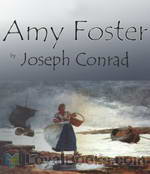 Amy Foster
Amy Foster
Classic shortish story by Conrad that relates his self-thought alienation from British society, as a young foreign man survives a shipwreck off the coast of Kent, England only to be shunned by most of the townsfolk. The one exception is the loving, if dull-witted, Miss Foster. | |
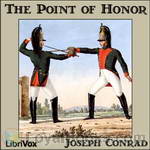 The Point of Honor
The Point of Honor
Set during the Napoleonic Wars, “The Point of Honor” (English title: “The Duel”) features two French Hussar officers, D’Hubert and Feraud. Their quarrel over an initially minor incident turns into a bitter, long-drawn out struggle over the following fifteen years, interwoven with the larger conflict that provides its backdrop. At the beginning, Feraud is the one who jealously guards his honor and repeatedly demands satisfaction anew when a duelling encounter ends inconclusively; he aggressively pursues every opportunity to locate and duel his foe... | |
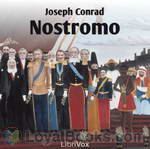 Nostromo
Nostromo
Señor Gould is a native Costaguanan of English descent who owns the silver-mining concession in Sulaco. He is tired of the political instability in Costaguana and its concomitant corruption, and puts his weight behind the Ribierist project, which he believes will finally bring stability to the country after years of misrule and tyranny by self-serving dictators. Instead, the silver mine and the wealth it has generated become a magnet for local warlords to fight over, plunging Costaguana into a new round of chaos... | |
 Tales of Unrest
Tales of Unrest
Tales of Unrest (1898) is the first collection of short stories by Joseph Conrad published in his lifetime.Joseph Conrad (1857–1924), a Polish-born English novelist, was a master in the formats of long short story and novella, a form of story longer than conventional short story but shorter than a novel. Some of Conrad's most acclaimed works have been written in these formats, most notably Heart of Darkness (1899).Tales of Unrest contains five stories; Karain: A Memory (written 1897; read by Jhiu), The Idiots (1896; read by Ann Boulais), An Outpost of Progress (1896; read by Kristine Bekere), The Return (1897; read by Raerity) and The Lagoon (1896; read by David Lazarus)... | |
 The Secret Sharer
The Secret Sharer
A young untested ship captain finds a man named Leggatt clinging to the side of his ship. The Captain makes the unusual decision to hide Leggatt in his quarters. What is he thinking? Conrad will tell us. - The Secret Sharer was first published in the August and September 1910 issues of Harper’s Magazine | |
 Victory: An Island Tale
Victory: An Island Tale
Recollections of the life of Axel Heyst, one-time manager of the liquidated Tropical Belt Coal Company in a fictitious island in the Pacific. After retreating from society in response to his professional failures, the misanthrope is drawn back by a romantic affair. (Introduction by S. Kovalchik) | |
 One Day More
One Day More
A one-act play. Eccentric Captain Hagberd has been waiting for years for his son to come home from the sea. He has scrimped and saved, outfitting a house for Harry to inherit upon his return, which will be in only "one day more." He has also planned that Harry will marry Bessie, the repressed maiden next door. Note: The recording was done outside, so there will be some ambient noise (airplanes, lawn mowers, birds, children... etc). | |
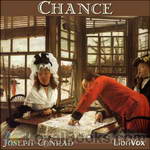 Chance
Chance
Apparently a two part story about a Damsel and a Knight, perhaps a damsel who depends upon the kindness of strangers. It was originally entitled "Dynamite" and first published by installments in the New York Herald. The book itself was the biggest commercial success for Conrad up until that time, 1913. It allowed Conrad for the first time to settle his financial affairs. The author's disdain for people who live on the land is apparent. A new understanding of the word "enthusiastic" is promulgated. And it is a love story. Let us see how the tale goes. | |
 An Outcast Of The Islands
An Outcast Of The Islands
An Outcast of the Islands is the second novel by Joseph Conrad, published in 1896, inspired by Conrad's experience as mate of a steamer, the Vigar. The novel details the undoing of Peter Willems, a disreputable, immoral man who, on the run from a scandal in Makassar, finds refuge in a hidden native village, only to betray his benefactors over lust for the tribal chief's daughter. The story features Conrad's recurring character Tom Lingard, who also appears in Almayer's Folly (1895) and The Rescue (1920), in addition to sharing other characters with those novels... | |
 Under Western Eyes
Under Western Eyes
Under Western Eyes (1911) is a novel by Joseph Conrad. The novel takes place in St. Petersburg, Russia, and Geneva, Switzerland, and is viewed as Conrad's response to the themes explored in Crime and Punishment, Conrad being reputed to have detested Dostoevsky. It is also, some say, Conrad's response to his own early life; his father was a famous revolutionary imprisoned by the Russians, but, instead of following in his father's footsteps, at the age of sixteen Conrad left his native land forever... | |
 Shadow-Line
Shadow-Line
Dedicated to the author's son who was wounded in World War 1, The Shadow-Line is a short novel based at sea by Joseph Conrad; it is one of his later works, being written from February to December 1915. It was first published in 1916 as a serial and in book form in 1917. The novella depicts the development of a young man upon taking a captaincy in the Orient, with the shadow line of the title representing the threshold of this development. The novella is notable for its dual narrative structure. The full, subtitled title of the novel is The Shadow-Line, A Confession, which immediately alerts the reader to the retrospective nature of the novella... | |
 Almayer's Folly
Almayer's Folly
A European businessman and his Malayan wife have a daughter, Nina. A Malayan prince comes to do trade with the businessman and falls in love with the daughter. Conflict arises when other influences cause distrust in the business partnership and the daughter runs off to be with the prince. | |
By: Harriet Beecher Stowe (1811-1896) | |
|---|---|
 Uncle Tom's Cabin
Uncle Tom's Cabin
Uncle Tom’s Cabin is one of the most controversial novels of the last century, with it’s sentimental portrayal of the anti-slavery movement in the USA. Written in 1852, the novel instantly rose to fame and split Americans up and down the country. Stowe was a passionate abolitionist and was inspired to write Uncle Tom when she spent time in Cincinnati in the early part of the 18th century. She met many slaves who had escaped from Kentucky and was touched by the friendships she built. It was with this sentiment that the novel was born and the deep empathy Stowe had for slaves is evident throughout... | |
 Oldtown Fireside Stories
Oldtown Fireside Stories
A sequel to Oldtown Folks, featuring some of the same characters, these are 15 charming short stories told by ole' Sam Lawson to entertain Horace and Bill, two impressionable, curious and clever young boys of Oldtown (a fictional 1850's New England village), during evenings gathered around the hearth, or roaming with Sam around the countryside. Stowe faithfully and masterfully captures many of the colloquial expressions, superstitions, beliefs, customs and habits of the period that have almost completely faded from modern American culture, as well as conveying many truths about the human condition that haven't changed a bit. ~ | |
 Queer Little Folks
Queer Little Folks
A wonderful children's classic - a collection of moral stories told by animals in the woods. The wittily written stories explore various issues in a fun way. | |
By: Jacob Abbott (1803-1879) | |
|---|---|
 Alexander the Great
Alexander the Great
Tutored by Aristotle, compelled to ascend the throne at the age of 20 when his illustrious father was assassinated, driven by a passion for expanding the borders of his tiny kingdom, Alexander of Macedon was one of the most towering figures of ancient history. He is brought to vivid life in this gripping volume by the American children's writer Jacob Abbott. In his short but eventful life, the young Macedonian king went on to rule over one of the most powerful and largest empires in the ancient world, breaking the hegemony of the powerful Persian dynasty of Darius... | |
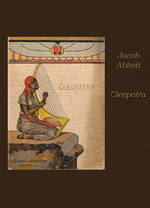 Cleopatra
Cleopatra
The French mathematician and philosopher, Blaise Pascal once remarked, “Cleopatra's nose. Had it been shorter, the whole face of the world would have been changed!” Such was the legendary power and attraction of this most famous woman ruler that generations of artists, readers, writers, historians and poets have ensured that she remains immortal and unforgettable. Jacob Abbott's Cleopatra is a work of historical biography, told in a highly dramatic and gripping style. It brings the characters and the circumstances to vivid life, making it an entertaining read for people of all ages... | |
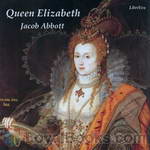 Queen Elizabeth
Queen Elizabeth
The history of a woman who rose above and beyond tragedy, grief and personal loss to become one of the most powerful figures in sixteenth century Europe is wonderfully told in this biography Queen Elizabeth, by Jacob Abbott. Beginning with the tragic circumstances of Elizabeth's mother, the lovely and doomed Anne Boleyn's execution and Henry VIII's dissolution of the English Catholic Church, the story of Elizabeth's rise to power is reflective of the England's domination of world politics as well... | |
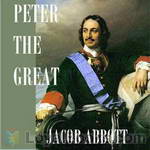 Peter the Great
Peter the Great
“There are very few persons who have not heard of the fame of Peter the Great, the founder, as he is generally regarded by mankind, of Russian civilization. The celebrity, however, of the great Muscovite sovereign among young persons is due in a great measure to the circumstance of his having repaired personally to Holland, in the course of his efforts to introduce the industrial arts among his people, in order to study himself the art and mystery of shipbuilding, and of his having worked with his own hands in a ship-yard there... | |
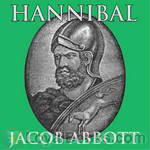 Hannibal
Hannibal
There are certain names which are familiar, as names, to all mankind; and every person who seeks for any degree of mental cultivation, feels desirous of informing himself of the leading outlines of their history, that he may know, in brief, what it was in their characters or their doings which has given them so widely-extended a fame. Consequently, great historical names alone are selected; and it has been the writer's aim to present the prominent and leading traits in their characters, and all the important events in their lives, in a bold and free manner, and yet in the plain and simple language which is so obviously required in works which aim at permanent and practical usefulness... | |
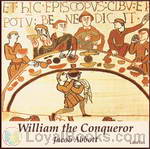 William the Conqueror
William the Conqueror
There are certain names which are familiar, as names, to all mankind; and every person who seeks for any degree of mental cultivation, feels desirous of informing himself of the leading outlines of their history, that he may know, in brief, what it was in their characters or their doings which has given them so widely-extended a fame. Consequently, great historical names alone are selected; and it has been the writer’s aim to present the prominent and leading traits in their characters, and all the important events in their lives, in a bold and free manner, and yet in the plain and simple language which is so obviously required in works which aim at permanent and practical usefulness... | |
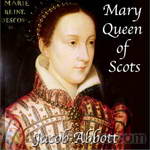 Mary Queen of Scots
Mary Queen of Scots
There are certain names which are familiar, as names, to all mankind; and every person who seeks for any degree of mental cultivation, feels desirous of informing himself of the leading outlines of their history, that he may know, in brief, what it was in their characters or their doings which has given them so widely-extended a fame. Consequently, great historical names alone are selected; and it has been the writer’s aim to present the prominent and leading traits in their characters, and all the important events in their lives, in a bold and free manner, and yet in the plain and simple language which is so obviously required in works which aim at permanent and practical usefulness... | |
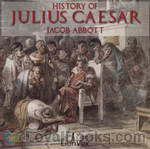 History of Julius Caesar
History of Julius Caesar
The book chronicles the extraordinary life and leadership of Rome’s Emperor Julius Caesar, from his early years to his assassination. | |
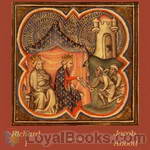 Richard I
Richard I
There are certain names which are familiar, as names, to all mankind; and every person who seeks for any degree of mental cultivation, feels desirous of informing himself of the leading outlines of their history, that he may know, in brief, what it was in their characters or their doings which has given them so widely-extended a fame. Consequently, great historical names alone are selected; and it has been the writer’s aim to present the prominent and leading traits in their characters, and all the important events in their lives, in a bold and free manner, and yet in the plain and simple language which is so obviously required in works which aim at permanent and practical usefulness... | |
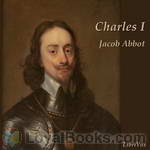 Charles I
Charles I
There are certain names which are familiar, as names, to all mankind; and every person who seeks for any degree of mental cultivation, feels desirous of informing himself of the leading outlines of their history, that he may know, in brief, what it was in their characters or their doings which has given them so widely-extended a fame. Consequently, great historical names alone are selected; and it has been the writer’s aim to present the prominent and leading traits in their characters, and all the important events in their lives, in a bold and free manner, and yet in the plain and simple language which is so obviously required in works which aim at permanent and practical usefulness... | |
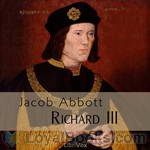 Richard III
Richard III
Jacob Abbott chronicles the unspeakably treacherous rise of Richard III to the throne of England in the midst of the war between the Yorks and the Lancasters and his ultimate fall on the Field of Bosworth. (Introduction by Cathy Barratt) | |
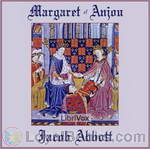 Margaret of Anjou
Margaret of Anjou
Margaret of Anjou, wife of England’s Henry VI, played a key role in launching the storied War of the Roses – the 30-year civil conflict fuelled by the Lancasters and the Yorks, each vying for the British throne in the 15th century. (Summary by Cathy Barratt.) | |
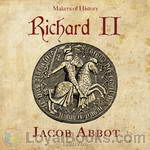 Richard II, Makers of History
Richard II, Makers of History
Chronicles the life of Richard II, born in 1367 in Bordeaux, France, who later wore the crown of King of England. | |
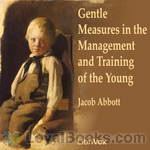 Gentle Measures in the Management and Training of the Young
Gentle Measures in the Management and Training of the Young
Subtitled, "The principles on which a firm parental authority may be established and maintained, without violence or anger, and the right development of the moral and mental capacities be promoted by methods in harmony with the structure and the characteristics of the juvenile mind." This book gives practical advice on how to raise children using "gentle measures" that do not damage the children's emotions or self esteem. Most of the information is as relevant and practical today as it was when published in 1871. | |
By: Hans Christian Andersen (1805-1875) | |
|---|---|
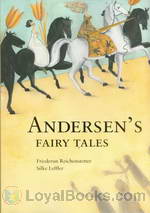 Andersen's Fairy Tales
Andersen's Fairy Tales
The Little Mermaid, The Ugly Duckling, The Snow Queen, The Real Princess and a host of other wonderful tales which form so much a part of childhood are part of Andersen's Fairy Tales, by Hans Christian Andersen. This volume contains eighteen selected stories. Some of them are old familiar friends, while others maybe new to some readers, but all of them equally enchanting and enthralling. Today, these stories are known almost everywhere in the world and have been translated into hundreds of languages... | |
 Hans Christian Andersen: Fairytales and Short Stories Volume 1, 1835 to 1842
Hans Christian Andersen: Fairytales and Short Stories Volume 1, 1835 to 1842
A collection of some of Hans Christian Andersen's works. He is a Danish author and poet most famous for his fairy tales. | |
By: F. Scott Fitzgerald (1896-1940) | |
|---|---|
 This Side of Paradise
This Side of Paradise
A romantic and witty novel that has weathered time to remain one of America’s classic pieces. In the shadows of the great Gatsby is another brilliant novel by F. Scott Fitzgerald. This book is evidence to Fitzgerald’s literal genius because it was written by the author in his twenties to mirror his experiences at the time. It paints a picture of what it was like to be a young man or woman in the 20th century and in the wake of the First World War. The book is set on a foundation of socialist principles... | |
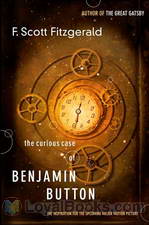 The Curious Case of Benjamin Button
The Curious Case of Benjamin Button
A life lived backwards, with events happening in reverse order forms the strange and unexpected framework of one of F Scott Fitzgerald's rare short stories. The Curious Case of Benjamin Button was published in Collier's in 1927 and the idea came to Fitzgerald apparently from a quote of Mark Twain's in which he regretted that the best part of life came at the beginning and the worst at the end. Fitzgerald's concept of using this notion and turning the normal sequence of life on its head resulted in this delightful, thought provoking fantasy tale... | |
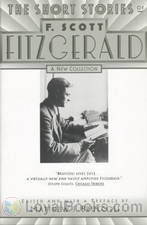 Selected Short Stories
Selected Short Stories
A shy and dowdy country girl, Berenice feels socially inept beside her vivacious and sophisticated cousin, Marjorie. But Marjorie decides to groom her and when Berenice turns out better than she expected, Marjorie is delighted, till Berenice catches the eye of one of Marjorie's own faithful admirers. Will Berenice remain the timid and diffident country girl, or will her newfound success give her courage? Lois, a young girl engaged to be married, suddenly becomes unsure about the relationship with her fiancé Howard... | |
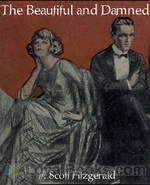 The Beautiful and Damned
The Beautiful and Damned
An idle, extravagant young man is the heir presumptive of his wealthy grandfather, an industrial tycoon. His wife, divinely beautiful and utterly selfish, believes that nothing is more powerful than her own beauty. Together, this couple represents what Fitzgerald famously portrayed as the lost generation of the Jazz Age in several of his novels. In The Beautiful and The Damned, F Scott Fitzgerald explores the trivial and shallow lives of the well-heeled inheritors of the American Dream the second or third generation that can afford to live on the fortunes that their forbears worked so hard to accumulate... | |
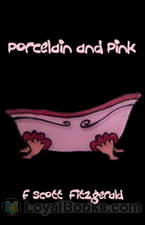 Porcelain and Pink
Porcelain and Pink
“Porcelain and Pink” is a comic one-act play from the 1922 short story collection Tales of the Jazz Age. The plot involves a young woman in a bathtub and a case of mistaken identity. Characters:Julie – Holly BlissLois – Jc GuanThe Young Man – mbNarration and audio editing – Laurie Anne Walden | |
 The Offshore Pirate
The Offshore Pirate
This is a long short story in 6 parts from Fitzgerald’s 1920 short story collection, Flappers and Philosophers. It predates the screwball movie comedies of the 1930’s in that it features a determined young heiress trying to get what she wants out of life. | |
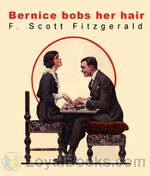 Bernice Bobs Her Hair
Bernice Bobs Her Hair
Pretty but socially clueless Bernice lets her know-it-all cousin push her around, but eventually, something's gotta give! (Introduction by BellonaTimes) | |
By: Emma Orczy (1865-1947) | |
|---|---|
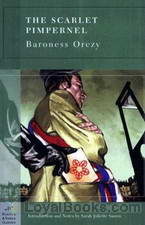 The Scarlet Pimpernel
The Scarlet Pimpernel
The Scarlet Pimpernel narrates the story of a rich English baronet who rescues French aristocrats facing the guillotine. He also taunted his enemies after each rescue by leaving behind a card that has a small flower on it – the scarlet pimpernel. It is a brilliant adventure story set at the time of the French Revolution. The plot is fantastic and rarely lets the readers pause for breath as it oscillates between London society and the dark night in Coastal France. The story follows a beautiful Countess who escapes from Paris as a committee there was making arrangements to send her to the guillotine... | |
By: Baroness Emmuska Orczy (1865-1947) | |
|---|---|
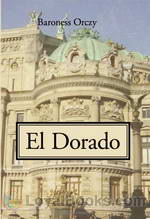 El Dorado
El Dorado
If you've read and loved the exciting classic The Scarlet Pimpernel then you'd probably be delighted to follow the further adventures of the dashing Sir Percy Blakeney. El Dorado by Baronness “Emmuska” Orczy depicts the intrepid swordsman and escape artist in the role of savior of the French royal family. Published in 1913, El Dorado was the fourth in the Pimpernel series of eleven books, numerous short stories and other related writings about her famous British adventurer. However, Orczy did not always follow a strict chronological sequence while publishing the novels and hence, there is plenty of overlap between the time frames of the stories... | |
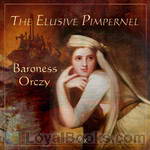 The Elusive Pimpernel
The Elusive Pimpernel
First Published in 1908, The Elusive Pimpernel by Baroness Orczy is the 4th book in the classic adventure series about the Scarlet Pimpernel. | |
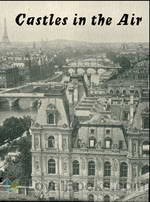 Castles in the Air
Castles in the Air
Baroness Emma Orczy (full name: Emma (”Emmuska”) Magdolna Rozália Mária Jozefa Borbála Orczy de Orczi) (September 23, 1865 – November 12, 1947) was a British novelist, playwright and artist of Hungarian noble origin. She was most notable for her series of novels featuring the Scarlet Pimpernel. Castles in the Air, a short novel or perhaps more like a collection of short stories with memories of a French rogue in the early 19th century Paris, was published in 1921 and about it I quote from the foreword: In very truth my good friend Ratichon is an unblushing liar, thief, a forger–anything you will; his vanity is past belief, his scruples are non-existent... | |
By: Henry David Thoreau (1817-1862) | |
|---|---|
 Walden
Walden
Two years, two months and two days! This is what forms the time line of one man's quest for the simple life and a unique social experiment in complete self reliance and independence. Henry David Thoreau published Walden in 1884. Originally drafted as a series of essays describing a most significant episode in his life, it was finally released in book form with each essay taking on the form of a separate chapter. Thoreau's parents were in financial straights, but rich intellectually and culturally... | |
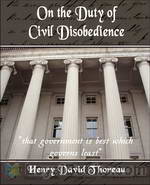 On the Duty of Civil Disobedience
On the Duty of Civil Disobedience
Civil Disobedience (Resistance to Civil Government) is an essay by American transcendentalist Henry David Thoreau that was first published in 1849. In it, Thoreau argues that individuals should not permit governments to overrule or atrophy their consciences, and that they have a duty to avoid allowing such acquiescence to enable the government to make them the agents of injustice. Thoreau was motivated in part by his disgust with slavery and the Mexican–American War. | |
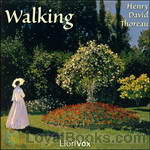 Walking
Walking
This was originally a lecture given by Thoreau in 1851 at the Concord lyceum titled “The Wild” . He revised it before his death and it was included as part of the June 1862 edition of Atlantic Monthly. This essay appears, on the surface, to be simply expounding the qualities of Nature and man’s place therein. Through this medium he not only touches those subjects, but with the implications of such a respect for nature, or lack thereof. | |
By: Anna Sewell | |
|---|---|
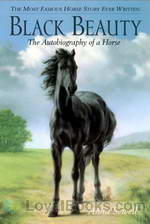 Black Beauty
Black Beauty
This unique tale is narrated by a lovely, gentle horse named Black Beauty and has remained a children's classic since it was first published in 1877. It earned eternal name and fame for its author Anna Sewell, an invalid who died within a few months of publication. According to current estimates, it has sold more than fifty million copies world wide, been translated into many languages and delighted generations of children. The original title page reads: Black Beauty: Translated from the original Equine by Anna Sewell and this gives the reader an instant glimpse into what the book will be about... | |
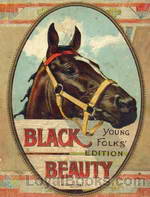 BLACK BEAUTY - Young Folks Edition
BLACK BEAUTY - Young Folks Edition
The same beloved story of the adventures and misadventures and of a young horse that we all know and love, but rewritten by the author for young people with much shorter chapters. All of the pathos, tenderness and fun are still there, just written for a younger audience. While forthrightly teaching animal welfare, it also teaches how to treat people with kindness, sympathy, and respect. | |
By: Mary Wollstonecraft Shelley (1797-1851) | |
|---|---|
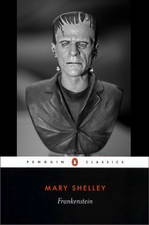 Frankenstein
Frankenstein
A precursor to gothic literature and science fiction genres, Frankenstein is a novel fuming with imagination as it depicts a well known horror story. Shelly’s gothic fiction is written in epistolary form as a means of correspondence between the failed writer Robert Walton and his sister, while he is away on a dangerous expedition in search of fame. Some major themes explored in the gothic classic are the fallibility of ambition and knowledge, revenge, prejudice, isolation, and the imperfections of society... | |
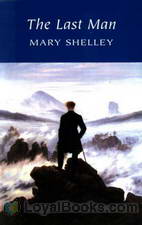 The Last Man
The Last Man
The Last Man is an early post-apocalyptic science fiction novel by Mary Shelley, which was first published in 1826. The book tells of a future world that has been ravaged by a plague. The plague gradually kills off all people. Lionel Verney, central character, son of a nobleman who gambled himself into poverty, finds himself immune after being attacked by an infected “negro,” and copes with a civilization that is gradually dying out around him. | |
 Mathilda
Mathilda
The finished draft of a short novel by Mary Shelley. Its adult theme, concerning a father’s incestuous love for his daughter and its consequences, meant that the manuscript was suppressed by Shelley’s own father, and not published until 1959, more than a hundred years after her death. Summary by Cori Samuel | |
By: Henry James (1843-1916) | |
|---|---|
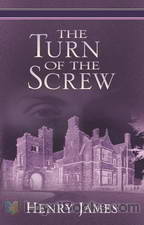 The Turn of the Screw
The Turn of the Screw
Christmas Eve. Guests round a fireside begin telling each other ghost stories. One of them relates a true incident involving the governess of his little nephew and niece. Strange events begin to take place, involving the housekeeper, a stranger who prowls round the grounds, a mysterious woman dressed in black and an unknown misdemeanor committed by the little nephew. The Turn of the Screw by Henry James was published in 1893 and it remains one of the best-known and admired works of this great American writer... | |
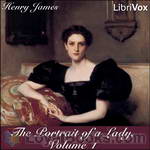 The Portrait of a Lady
The Portrait of a Lady
Regarded as one of James’ finest works, The Portrait of a Lady revolves around the life and the development of Isabel Archer as she embarks on a scrupulous journey of self-discovery, forced to choose between her individual freedom and the preset conventions of society. Moreover, the novel explores themes of existentialism, objectification of women, wealth, suffering, and the conflict between individual longing and social conformity. Set in the second half of the 19th century, the novel opens with the introduction of Isabel Archer, a naive young woman from Albany, New York... | |
 Washington Square
Washington Square
First appearing as a serial in Cornhill Magazine in 1880, Washington Square focuses on the strained relationship between father and daughter, which is instigated as a result of opposing personalities, viewpoints, and lack of affection. At the same time, James presents an insidious father, who would rather sacrifice his daughter’s happiness and condemn her to a lifetime of misery, simply to prove the accuracy of his prediction. Essentially a tragicomedy, the novel focuses on themes including family, deception, cruelty, manipulation, and opposed principles... | |
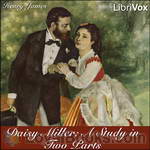 Daisy Miller: A Study in Two Parts
Daisy Miller: A Study in Two Parts
Daisy Miller is an 1878 novella by Henry James. It portrays the confused courtship of the eponymous American girl by Winterbourne, a compatriot of hers with much more sophistication. His pursuit of her is hampered by her own flirtatiousness, which is frowned upon by the other expatriates they meet in Switzerland and Italy. Her lack of understanding of the social mores of the society she so desperately wishes to enter ultimately leads to tragedy. | |
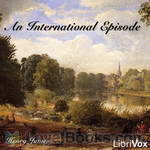 An International Episode
An International Episode
Two men visting the US from London meet a pair of charming women who return the visit the following year in London. Romantic intrigues, miscommunication and cultural faux pas abound in this short but delightful novel. | |
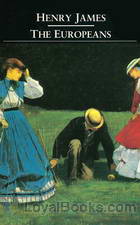 The Europeans
The Europeans
The Europeans: A sketch is a short novel by Henry James, published in 1878. It is essentially a comedy contrasting the behaviour and attitudes of two visitors from Europe with those of their relatives living in the ‘new’ world of New England. The novel first appeared as a serial in The Atlantic Monthly for July-October, 1878. James made numerous minor revisions for the first book publication. | |
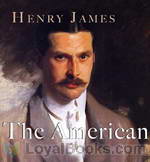 The American
The American
One of James’s early novels, The American plunges right in to one of the writer’s most enduring subjects, that of the innocent, or at least inexperienced, American abroad, seeking to come to terms with the social customs and conventions of an old European aristocracy (think of Daisy Miller, Portrait of a Lady, The Wings of the Dove and others). The aptly named Christopher Newman, having made a small fortune from business in California, has come to the Old World for the first time, determined to enlarge his experience by learning all he can of it... | |
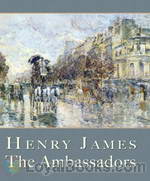 The Ambassadors
The Ambassadors
Henry James considered The Ambassadors his best, or perhaps his best-wrought, novel. It plays on the great Jamesian theme of Americans abroad, who finds themselves in an older, and some would say richer and more sophisticated, culture that that of the United States. The protagonist is Lambert Strether, a man in his fifties, editor of a small literary magazine in the manufacturing town of Woollett, Massachusetts, who arrives in Europe on a mission undertaken at the urging of his patron, Mrs. Newsome, to bring home her son Chadwick... | |
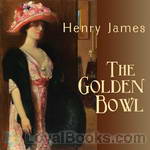 The Golden Bowl
The Golden Bowl
The Golden Bowl is a 1904 novel by Henry James. Set in England, this complex, intense study of marriage and adultery completes what some critics have called the “major phase” of James’ career. The Golden Bowl explores the tangle of interrelationships between a father and daughter and their respective spouses. The novel focuses deeply and almost exclusively on the consciousness of the central characters, with sometimes obsessive detail but also with powerful insight. | |
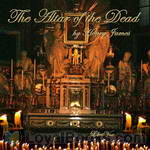 The Altar of the Dead
The Altar of the Dead
A fable of literally life and death significance, the story explores how the protagonist tries to keep the remembrance of his dead friends, to save them from being forgotten entirely in the rush of everyday events. He meets a woman who shares his ideals, only to find that the past places what seems to be an impassable barrier between them. Although James was not religious in any conventional sense, the story shows a deep spirituality in its treatment of mortality and the transcendent power of unselfish love. | |
 The Wings of the Dove
The Wings of the Dove
The Wings of the Dove, published in 1902, represents to my memory a very old–if I shouldn’t perhaps rather say a very young–motive; I can scarce remember the time when the situation on which this long-drawn fiction mainly rests was not vividly present to me. The idea, reduced to its essence, is that of a young person conscious of a great capacity for life, but early stricken and doomed, condemned to die under short respite, while also enamoured of the world; aware moreover of the condemnation and passionately desiring to “put in” before extinction as many of the finer vibrations as possible, and so achieve, however briefly and brokenly, the sense of having lived. | |
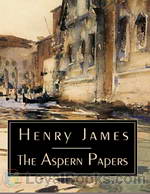 The Aspern Papers
The Aspern Papers
One of James’s favorite short novels, the Aspern Papers tells of the efforts of the nameless narrator to procure the papers of a famous, but now dead, American poet. His attempts to secure them from the poet’s former lover and her niece, now recluses in Venice, are stymied both by them, and by his own mistakes in his quest. | |
 The Beast in the Jungle
The Beast in the Jungle
'The Beast in the Jungle' is a 1903 novella by Henry James, first published as part of the collection, The Better Sort. Almost universally considered one of James' finest short narratives, this story treats appropriately universal themes: loneliness, fate, love and death. The parable of John Marcher and his peculiar destiny has spoken to many readers who have speculated on the worth and meaning of human life. | |
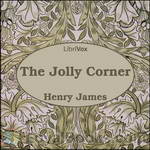 The Jolly Corner
The Jolly Corner
“The Jolly Corner,” published in 1908, is considered by many to be a ghost story ranking second only to “The Turn of the Screw.” James’s protagonist, Spencer Brydon, is an American of 56, returned to New York after 33 years in Europe, where he has apparently accomplished little while living off his New York rentals. His friendship with Alice Staverton, and his engagement in the development of a property awaken him to the possibilities that might have been his, had he chosen a different course of life... | |
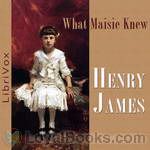 What Maisie Knew
What Maisie Knew
When Beale and Ida Farange are divorced, the court decrees that their only child, the very young Maisie, will shuttle back and forth between them, spending six months of the year with each. The parents are immoral and frivolous, and they use Maisie to intensify their hatred of each other. | |
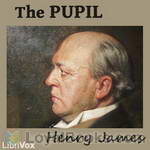 The Pupil
The Pupil
Pemberton, a young American with an Oxford education and out of money, takes a job tutoring Morgan Moreen, the 12-year old son of an American couple living in Europe in a style not quite matched by their income. Morgan, who is highly intelligent, is also precocious and perceptive enough to understand his parents' pretentious aimlessness. Nor, as it happens, do his parents pay Pemberton the salary to which they'd agreed -- shouldn't he be satisfied, after all, by his life with them, and by the joy of tutoring young Morgan? Alternately charmed and put off by the Moreen family, Pemberton is left to choose between his attachment to his young pupil and his need to get on in life. | |
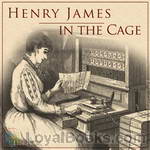 In the Cage
In the Cage
In the Cage is a novella by Henry James, first published as a book in 1898. This long story centers on an unnamed London telegraphist. She deciphers clues to her clients' personal lives from the often cryptic telegrams they submit to her as she sits in the "cage" at the post office. Sensitive and intelligent, the telegraphist eventually finds out more than she may want to know. | |
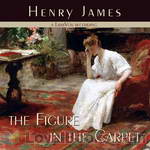 The Figure in the Carpet
The Figure in the Carpet
The story ostensibly concerns a young literary critic who greatly admires the writer Hugh Vereker. A meeting with Vereker, however, shows him that he — and all other critics — have in fact missed the great point of Vereker’s work, and the critic (and his editor) thereupon devote themselves to trying to unravel the mystery. James’s story, however, almost certainly has an autobiographical side to it, perhaps itself criticizing those critics who couldn’t see, or wouldn’t see, the figures lost in the carpet of his own writing. | |
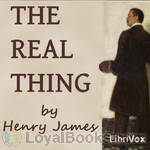 The Real Thing
The Real Thing
The Real Thing is, on one level, a somewhat ironic tale of an artist and two rather particular models. Yet it also raises questions about the relationship between the notion of reality in our humdrum world, and the means that an artist must use in trying to achieve, or reflect, that reality. Though the protagonist is an artist and illustrator of books, not a writer, it's not hard to imagine that James has himself, and other writers, in mind. | |
 A Small Boy and Others
A Small Boy and Others
A Small Boy and Others is a book of autobiography by Henry James published in 1913. The book covers James’s earliest years and discusses his intellectually active family, his intermittent schooling, and his first trips to Europe. | |
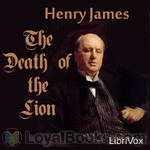 The Death of the Lion
The Death of the Lion
This short novel is a black comedy about fame, manipulation, pretension, and surviving it all. The narrator, a reprehensible and seedy journalist, sets out to interview a minor author, and in his own quest for glory, turns the author into the celebrity of the day. The sudden and untimely death of the author, with his latest work unfinished, presents a troubling dilemma for the narrator, which he resolves with no more conscience than he had when he began his quest. (Introduction by Christine Dufour) | |